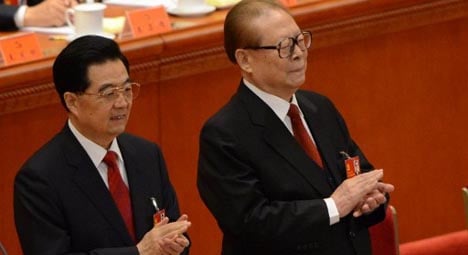The Madrid-based court deemed the arguments given by the pro-Tibet human rights groups as sufficient grounds to call the suspects up for questioning, Spain's ABC newspaper reported.
They alleged that the five suspects in question played pivotal roles in the Tibetan genocide in the 1980s and 1990s.
The court issued the arrest warrant under the doctrine of universal jurisdiction, which allows courts to try certain cases of human rights abuses committed in other countries.
It accepted the case because one of the plaintiffs, Tibetan exileThubten Wangchen, has Spanish nationality, and the Chinese courts have not investigated the allegations.
Chinese authorities previously described the allegations as “sheer fabrication” and slammed Spain for meddling in China’s home affairs.
"Tibet is an inseparable part of China," foreign ministry spokeswoman Hua Chunying said at a regular briefing in October, adding the region's affairs are a Chinese "domestic" matter.
"We are firmly opposed to any country or any individuals' interference in China's domestic affairs under the pretext of the Tibet-related issue," she said.
Former Prime Minister Li Peng is among the officials facing arrest and ex Chinese President Hu Jintao is also under investigation.
The lawsuit, which was filed by the Tibet Support Committee, targets seven past Chinese leaders.
The lawsuit has its origins in a 2006 decision by Spain's National Court that it had the powers to investigate the Tibetan genocide given that it was impossible for Chinese courts and the International Criminal Court to do so.



 Please whitelist us to continue reading.
Please whitelist us to continue reading.
Member comments